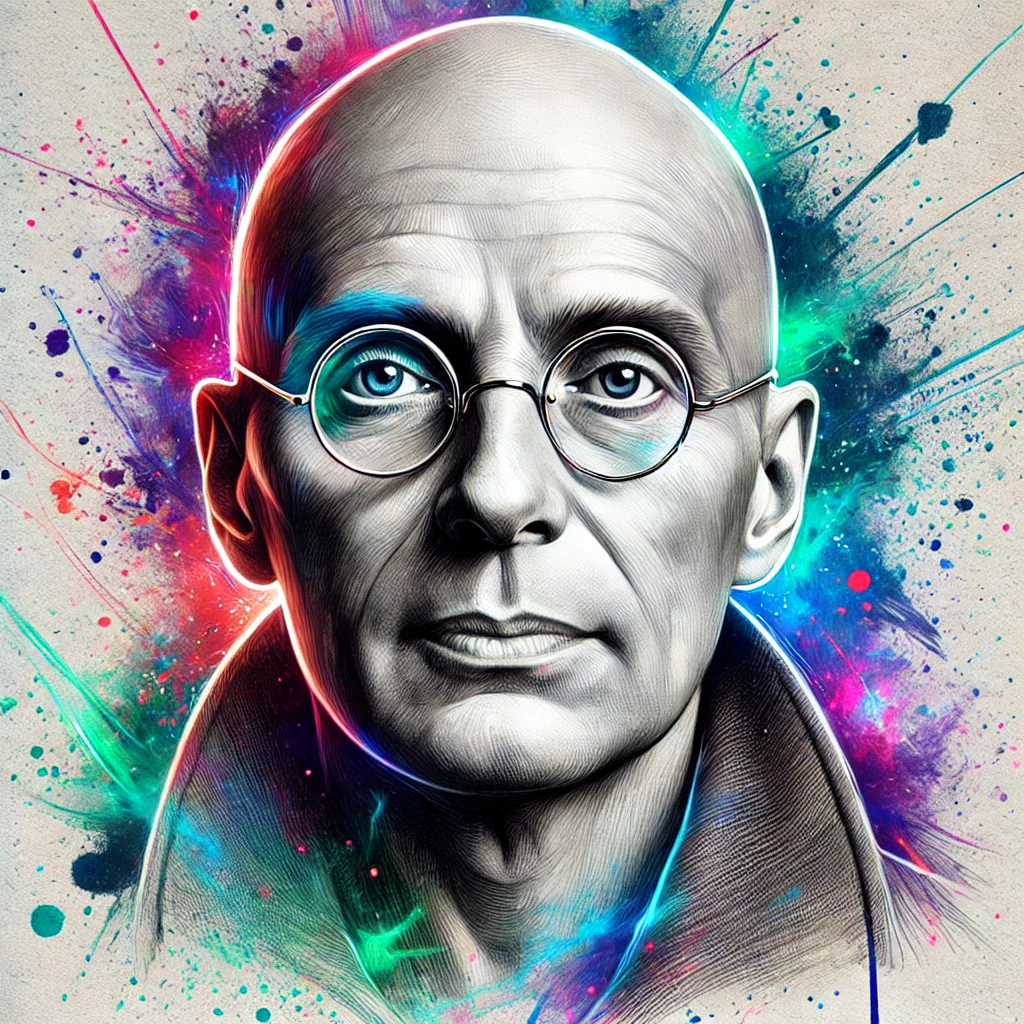Karl Marx’s views on religion are an integral part of his broader critique of capitalism and social structures. He saw religion as both a reflection of and a response to the social conditions created by economic inequality, particularly under capitalism. In other words, religion is both an expression of alienation and a mechanism that perpetuates the status quo. Unlike thinkers who saw religion as a purely spiritual or philosophical phenomenon, Marx treated it as a socio-political institution that played a crucial role in maintaining existing power structures and economic systems.
Religion as a Reflection of Material Conditions
For Marx, religion is not an independent or purely spiritual force but a social construct that reflects the material conditions of life. He viewed human consciousness, including religious beliefs, as being shaped by the economic base of society. In Marx’s dialectical materialism, the base refers to the economic structure of society—how goods are produced, the class relations, and the organization of labor. The superstructure, which includes religion, culture, politics, and ideology, arises from and supports the base.
Marx argued that religion emerged in response to the alienation and suffering produced by class-based societies. In this sense, religion is a reflection of the real, material conditions of life under capitalism, where the majority of people live in hardship and deprivation while a small elite controls wealth and power.
- Alienation: Marx believed that in capitalist societies, workers are alienated from the products of their labor, from each other, and from their own humanity. Religion, in his view, provides a way for people to cope with this alienation by offering an illusory form of hope and comfort. It helps individuals endure the hardships of life by promising them a better life after death or encouraging them to accept their suffering as part of a divine plan.
“Man makes religion; religion does not make man. Religion is indeed the self-consciousness and self-esteem of man who has either not yet won through to himself, or has already lost himself again“.
Religion as the “Opium of the People”
Marx’s most well-known statement about religion comes from his 1843 Critique of Hegel’s Philosophy of Right. This phrase has often been misunderstood or taken out of context, so it is essential to grasp the full meaning behind it.
“Religion is the sigh of the oppressed creature, the heart of a heartless world, and the soul of soulless conditions. It is the opium of the people“.
Marx did not mean that religion is a form of escapism in the simple sense, but that it functions as a painkiller for the suffering masses. Religion, like opium, dulls the pain of living in an unjust and exploitative society. By offering people consolation and a promise of future happiness in an afterlife, it distracts them from recognizing and challenging the sources of their misery in the present.
However, Marx also acknowledged that religion served as a genuine expression of people’s suffering. In the same passage, he wrote:
“Religious suffering is, at one and the same time, the expression of real suffering and a protest against real suffering.” Religion, therefore, reflects people’s deep desire for relief from suffering, even though it offers an illusory solution. Instead of directly addressing the material conditions that cause suffering (i.e., exploitation under capitalism), religion encourages people to accept their hardships as part of a divine plan or as a necessary part of their spiritual journey.
It also shows Marx’s dual perspective on religion. On the one hand, it recognizes religion as a coping mechanism for the suffering inflicted by exploitative socio-economic systems. On the other, it critiques religion as an ideological narcotic that obscures the material roots of human suffering, thus inhibiting revolutionary consciousness. Tucker (1978) notes that Marx’s comparison to opium reflects both its palliative and deceptive qualities, serving as an analgesic that dulls the pain of oppression without addressing its root causes.
- False Consciousness: Marx argued that religion contributes to what he called “false consciousness,” a condition where the working class (or proletariat) is misled about the true nature of their exploitation. By promoting the idea that suffering is virtuous or that there is a divine purpose to social inequality, religion helps to maintain the status quo. People are less likely to resist exploitation if they believe their suffering has spiritual significance or will be rewarded in the afterlife.
Religion and Class Interests
Marx saw religion as a tool used by the ruling class (the bourgeoisie) to maintain their dominance over the working class. In his analysis, religion serves the interests of the ruling class by promoting social order and legitimizing inequality. It teaches obedience, encourages resignation to one’s fate, and discourages revolt by portraying the social hierarchy as part of a divine plan.
In pre-modern societies, for instance, monarchies justified their rule through the divine right of kings, implying that the social and political order was ordained by God. Under capitalism, Marx believed religion continued to play a similar role by discouraging workers from questioning the economic system that exploits them.
- Religious Institutions and Power: Marx was critical not just of religious beliefs but also of religious institutions, which he saw as being complicit in upholding the power of the ruling class. Churches and religious leaders often preached submission to authority and acceptance of poverty as virtuous. They served as ideological institutions that reinforced the existing social order, helping to keep the working class in a state of subjugation.
Religion and Social Change
While Marx was critical of religion as a force that helped maintain capitalist oppression, he also believed that its abolition was necessary for human liberation. He famously wrote: “The criticism of religion is the premise of all criticism.” For Marx, challenging religion meant not just rejecting its spiritual claims but also recognizing its role in perpetuating economic and social exploitation.
Marx argued that once people realized that their suffering was not a result of divine will but of capitalist exploitation, they would be able to rise up and overthrow the system. The abolition of religion would be part of the broader process of ending alienation and achieving a classless, communist society.
- Secularization and Human Emancipation: Marx believed that with the eventual overthrow of capitalism, religion would naturally lose its influence. In a classless, egalitarian society, where people are no longer alienated from their labor or from each other, the need for religion as a source of comfort would disappear. Human beings would no longer look to the heavens for salvation but would take control of their own destinies through collective social and economic emancipation.
Marx’s Legacy and Influence on Religious Criticism
Marx’s views on religion have had a profound impact on modern social theory and political thought. His materialist critique of religion influenced later thinkers, including those in the fields of sociology, anthropology, and political science. Marx’s analysis helped shift the study of religion from a purely theological or philosophical approach to one that examines religion’s social, economic, and political functions.
- Secular Movements: Marxist theory has played an important role in secular movements that seek to separate religion from politics and governance. In many socialist and communist movements throughout the 20th century, Marx’s ideas about religion were used to justify the promotion of atheism and the suppression of religious institutions, which were seen as obstacles to class struggle and revolution.
- Criticism of Marx’s View: At the same time, Marx’s view of religion has been criticized for being overly reductionist. Critics argue that Marx focused too much on the role of religion in maintaining social control and overlooked its potential as a source of social cohesion, solidarity, and moral guidance. Some scholars also argue that Marx underestimated the ability of religion to inspire social justice movements, including those that challenge economic inequality.
Conclusion
Karl Marx viewed religion through the lens of his broader critique of capitalism and class society. For him, religion was both a symptom and a tool of oppression, reflecting the alienation and suffering of the working class while also helping to maintain the dominance of the ruling class. His famous description of religion as the “opium of the people” highlights his belief that religion provided an illusory comfort that distracted people from recognizing and challenging their exploitation.
Marx believed that the abolition of religion would be a necessary part of the process of human emancipation, as people would only be truly free when they overcame the conditions of alienation that gave rise to religion in the first place. Despite its controversial nature, Marx’s critique of religion remains a foundational text for understanding the relationship between religion, ideology, and social power in modern society.
References
- McLellan, D. (1987). Marxism and Religion. London: HarperCollins.
- Smith, T. (2017). The Oxford Handbook of Karl Marx. Oxford University Press.
- Tucker, R. C. (Ed.). (1978). The Marx-Engels Reader (2nd ed.). W.W. Norton.
- King, R. (Ed.). (2017). Religion in Classical Social Theories: Marx, Weber, and Durkheim. Routledge.
- Marx, K., & Engels, F. (1845). The German Ideology. Progress Publishers.


